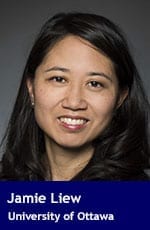 The House of Commons recently voted unanimously to call the killings, persecution, rape, abuse, destruction of homes and forced displacement of Rohingya from Myanmar as genocide. More than 900,000 Rohingya have fled Myanmar since 2017.
The House of Commons recently voted unanimously to call the killings, persecution, rape, abuse, destruction of homes and forced displacement of Rohingya from Myanmar as genocide. More than 900,000 Rohingya have fled Myanmar since 2017.
Now, the House has voted unanimously to revoke Aung San Suu Kyi’s honorary Canadian citizenship, which she received in 2007.
These two actions should be applauded.
Revoking the coveted status of citizenship is appropriate in this case given the fact that many Rohingya have no citizenship to speak of. What most people may not realize is that since 1982, Rohingya have been stripped of their citizenship and denied any entitlement to citizenship in Myanmar.
Many Rohingya are stateless as a result of this deliberate change in citizenship law. Overnight, Rohingya became illegal immigrants within their own country. While initially they were given temporary identity cards, the cards were revoked in order to deny them the right to vote in a 2015 constitutional referendum.
Rohingya did not only lose citizenship, they also their ability to identify as Rohingya. Rohingya have been denied recognition as one of the country’s 135 official ethnic groups. In a 2014 census, if Rohingya persons wanted to participate, they had to identify as Bengali, not Rohingya.
The loss of citizenship is not a benign act, especially for those who have no citizenship elsewhere. My family knows first-hand what being stateless means.
Aung San Suu Kyi, Myanmar’s ‘hero’, holds anti-free market views by Fred McMahon
My father was stateless in Brunei and told me it was difficult to plan for the future, that he had difficulties finding employment and feared the risk of being removed from his country of residence. He feared his children would not receive education, would be treated differently and would never belong. As a stateless person, he never felt safe.
Being stateless means, at a minimum, loss of basic rights such as an identity recognized by the state, access to health care, education, employment and freedom of movement. Even obtaining a bank account, cellphone account or registering birth, marriage or death are difficult, if not impossible. Access to venues to protect your human rights, such as the right not to be detained arbitrarily, becomes more difficult when you’re not protected by the state you thought was your home.
For Rohingya, however, it has meant much more. The stripping of citizenship has fuelled discrimination, persecution and violence against them.
The difference and othering created by the stripping of citizenship has cast the label of outsider on the Rohingya and justified the oppression they have suffered for years. This institutionalized exclusion of Rohingya in 1982 and the perpetual rejection and discrimination has allowed hate and violence to simmer and boil over 30 years.
Suu Kyi stated in 2012 that she “didn’t know” if Rohingya could be considered citizens of Myanmar. In 2016, she told the U.S. ambassador to Myanmar that the Rohingya are not among the official ethnic groups in Myanmar. As well, in 2016, Suu Kyi denied that ethnic cleansing was taking place.
Many have described Suu Kyi as being silent on the issue of the persecution and violence perpetrated against Rohingya. But the few statements she has made on the issue of Rohingya citizenship and belonging, while crimes and violence against Rohingya were widely reported at the same time, can’t be considered silence. It’s an endorsement of the ethnic cleansing and genocide that has been allowed to continue.
Her statements frame the primary justification that Rohingya don’t belong in Myanmar.
For a scholar who researches statelessness and abhors any act to take citizenship away from anyone, I find the Canadian government’s decision to strip Suu Kyi of her Canadian citizenship compelling. First, she has Myanmar citizenship and stripping Canadian citizenship doesn’t render her stateless.
Second, Canada is making a powerful statement about her role in denying citizenship from those who, in emerging international law, should enjoy such status by virtue of their dominant, genuine and effective links and their past and ongoing habitual residence in Myanmar. Rohingya have been in Myanmar for years, even before the country gained independence from British colonization.
Finally, Parliament has given some heft to its recent statement that there is a Rohingya genocide by taking away Canadian citizenship from a person who plays a role in the creation and perpetuation of statelessness in Myanmar.
Honorary citizenship should not be held by a person who allows the legal fact of statelessness to be harnessed by others to engage in oppression, violent displacement and the killing of Rohingya.
Jamie Liew is an associate professor at the University of Ottawa, Faculty of Law. She is the daughter of a previously stateless person and researches on legal barriers to statelessness.
The views, opinions and positions expressed by columnists and contributors are the author’s alone. They do not inherently or expressly reflect the views, opinions and/or positions of our publication.


